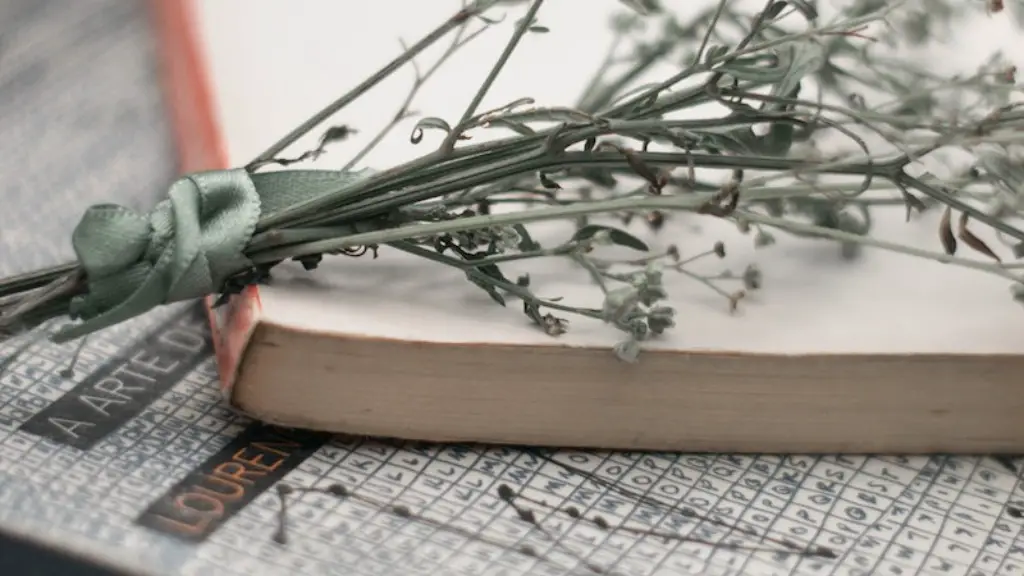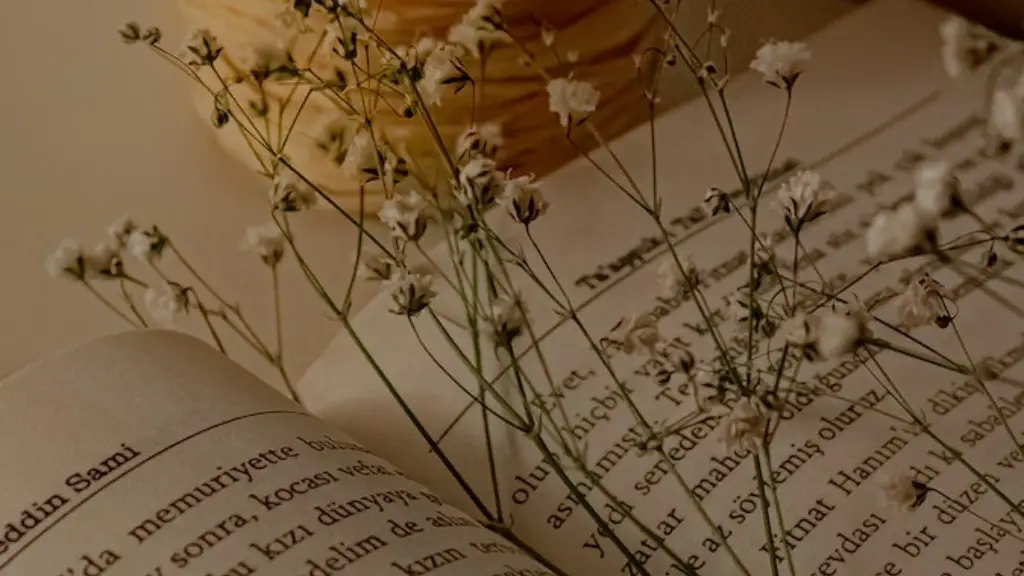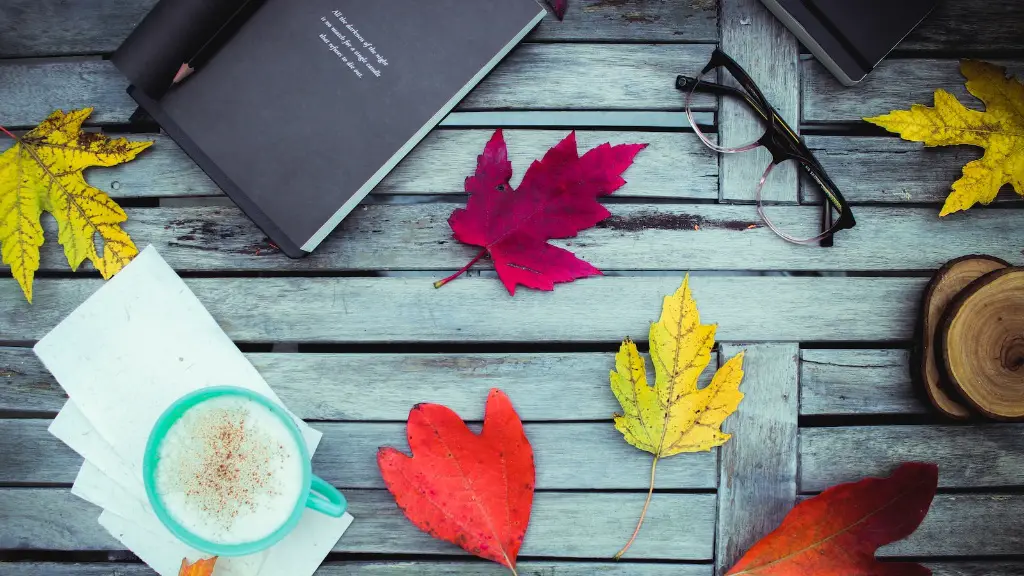For centuries, poetry has been seen as one of the most emotional and creative forms of writing. The art of poetry has been around since the dawn of human civilization, and its messages—though varied—are timeless. But when did poetry first start, and how has the form changed over the centuries?
According to historical records, the earliest forms of poetry can be traced back to ancient Mesopotamia and Egypt. Many of the oldest surviving written poems, called hymns and epics, originated in these early civilizations. The Mesopotamian Epic of Gilgamesh, for example, is widely regarded as one of the earliest works of literature. Written in 2100 BCE, it tells the story of the titular hero and his journey to discover the meaning of life. Around the same time in Egypt, the “Hymn to the Nile” was written, which celebrated the river and the bountiful crops it provided.
By the 8th century BCE, poetry had spread to Greece, where it flourished alongside drama, philosophy and art. Most of the most revered poets of this period, including Homer and Hesiod, were writers of epic poems. Epic poems were very long, often spanning several books. They told grand stories of gods, heroes and great battles, and featured intricate details and layered symbolism. The popularity of epic poetry would remain strong in Greece until the 5th century BCE, when shorter, more intimate forms of poetry began to emerge.
The development of longer and metaphysical poems in Greece had a profound impact on the development of European literature. Ancient Roman and Greek authors wrote extensively about philosophy and religion in their poems, and their influence can still be seen in the works of modern poets. By the Middle Ages, Christian and Islamic authors hadalso began to write extensively about religious topics in their poetry.
As time went on, poetry in Europe became increasingly secular. By the 16th century, sonnets and other increasingly accessible forms of poetry had been developed. These poems often explored themes of love and personal reflection and proved to be incredibly popular. The next defining moment in the history of poetry came in the 18th century, when the Romantic movement changed the way poets wrote. Romantic authors embraced self-expression and emotion, and their works often featured complex metaphors and vivid imagery.
Today, poetry has become a popular form of creative expression around the world. In every corner of the globe, poets continue to experiment with words and explore their own emotions in their work. Whether it be in the form of protest anthems in Latin American countries, or simple haikus in Japan, poetry continues to be a powerful tool for human expression.
Effects on Society
Poetry has been instrumental in shaping society for centuries. It has been used to express political views, spread messages of hope and resilience, and critique the status quo. The works of ancient Greek poets, for example, were highly influential in shaping the values and beliefs of their societies. In the 20th century, the seminal works of key African-American poets, such as Langston Hughes and Maya Angelou, provided a source of strength and comfort during difficult times.
Today, poetry continues to be a powerful force for social change. In the wake of the Black Lives Matter Movement, many have turned to poetry to express their feelings and document their experiences. Whether it be student activists sharing impassioned speeches online or community groups hosting poetry slams, poetry is used as a way to hold protests, inspire others and push for change.
At the same time, poetry continues to be a source of joy and reflection. Many people utilize poetry to document self-discovery and find solace in words during difficult times. Modern-day poets often use humor, sarcasm and unconventional language to convey their emotions in ways that traditional means of communication cannot. In many ways, poetry has become a form of personal therapy—a way to process the world and reflect on our feelings in a creative and meaningful way.
Themes in Poetry
Throughout the centuries, there have been certain themes that have become almost universal in the world of poetry. Themes of love and loss, as well as nature and the human experience, often appear in works of poetry from all periods of history. Famous poets such as Shakespeare, Sappho and Rumi were known for exploring themes of romance, mortality and the meaning of life in their works. Other poets, like Walt Whitman and T.S. Eliot, explored themes of nature and humanity through abstract poetic language.
More recently, poets have sought to explore themes of identity and self-discovery. Many modern-day poets have written about race, gender and sexuality in their works, providing a needed source of representation and understanding in a world where these issues still often remain taboo. In this way, poetry continues to provide a platform for marginalized voices, allowing them to have their stories heard and seen.
Forms of Expression
Poetry, much like language itself, is ever-evolving and adapting to new social settings. Over the centuries, a number of new poetic forms have emerged and become popular. Haiku, a brief form of Japanese poetry consisting of three lines, has become a staple of classrooms around the world. Rap, a form of poetical expression made popular in the late 20th century, has become a dominant genre in the music industry. More recently, slam poetry—a form of competition poetry—has seen a surge in popularity, particularly in the United States.
No matter the form, poetry has consistently proven to be a powerful tool of expression. Throughout the centuries, it has been an important source of comfort, inspiration and reflection for countless people. And as it continues to evolve, it remains a dynamic and vibrant art form in its own right.
Impact on Global Culture
The influence of poetry can be felt in cultures all over the world. Many of the most renowned works of literature—from The Odyssey to The Divine Comedy—have been written in poetic form. And though the golden age of epic poetry has long since passed, many such works still remain iconic parts of global culture.
In the 21st century, poetry is an even more central part of global culture. A number of international poets—from Igbo authors in Nigeria to slam poets in France—have achieved global fame and acclaim. And poets of all backgrounds continue to share their perspectives on social media, allowing their powerful words to be seen by millions of people.
Poetry has also had an impact on the contemporary art world. In recent years, spoken word poetry has been featured in a wide range of films, TV shows, and theatre. This has given a platform to emerging poets and has allowed their works to reach broader audiences. Similarly, poetry slams have become immensely popular around the world, especially among younger generations.
Impact on Education
In classrooms around the world, poetry is often seen as a fun and engaging way to learn language and literature. Teaching poetry has become a cornerstone of primary and secondary education, as it provides students with an enjoyable way to explore and practice language. Poetry has also long been credited with promoting creativity and self-expression in young people.
At the same time, poetry is often used as a tool to explore difficult topics, from depression to human rights. Educators have increasingly turned to poetry to engage students on topics they might shy away from in more conventional settings. This has allowed students to explore sensitive subjects more deeply and, importantly, empathize with those who have experienced similar struggles.
In this way, poetry has become an invaluable resource to students and educators alike and is a powerful tool for understanding and expressing ourselves. The impact of poetry, both past and present, is one that leaves a lasting impression on culture and language.




